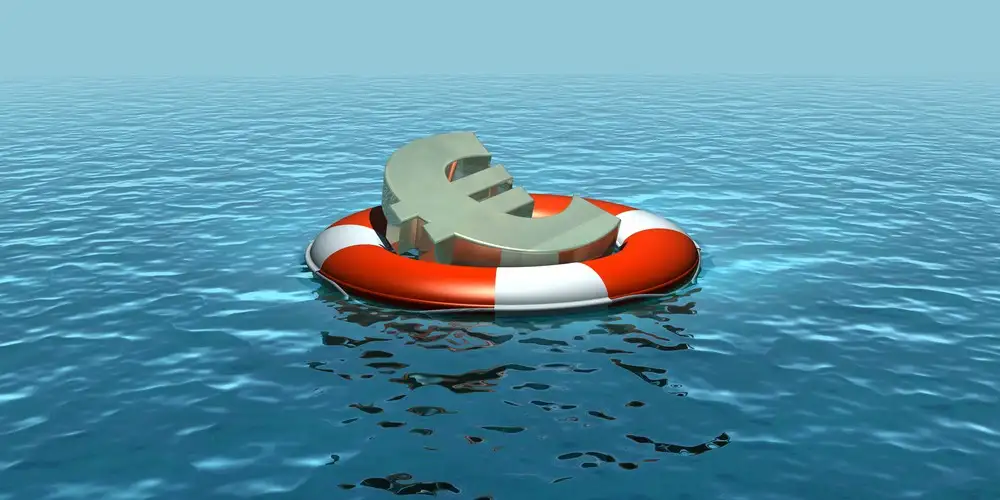
A recent article on InternationalLiving.com reports that real estate in Greece is in a “freefall.” The release continues with comments by a “real-estate expert” that the Greek real-estate market and prices are “falling like a rock,” and that “real estate is about to become dirt cheap.” Already low prices will drop even more if Greece withdraws from the euro (a very possible scenario) and reestablishes its own highly devalued currency. Although Athens has experienced some civil unrest, the islands remain calm, and travelers will be able to buy a Greek island cottage “for the price of a family sedan.”
Certainly, if you’ve ever wanted to own a vacation home on a Greek island, you’ll find a buyers’ market … especially if Greece drops the euro. But you have more to consider than just price. This situation brings to mind two illustrative, and very different, scenarios from my personal life.
Back in the mid-’50s, my parents and a few other couples from the Chicago area joined together to rent a luxurious gated-community beach house in Varadero, Cuba. The price was attractive, and Varadero was (and is) one of the world’s great beaches. By the third year, my father recounted, it became apparent that the developers of the gated community were using low rental rates to lure Americans to buy into the development, also at very low prices. Some did. But my father considered the increasing political unrest in Cuba and decided not to bite on the deal. And, sure enough, within a year, the Castro government had taken over the island and expropriated all of the luxury homes in the development, leaving the buyers with nothing.
Fast forward to 1985. My wife and I were traveling in Europe at a time when the dollar had reached historical highs. At one point, my recollection is that the pound had dropped as low as $1.03, and I was needling my British friends about throwing a “parity party” in a matter of weeks. The French franc, which had been around four or five to the dollar, had dropped to 10 to the dollar. When driving around Brittany, we came across a new development where separate houses, right on the Channel, were going for 400,000 francs, or about $40,000 USD. If we had had $40,000 lying around at that time, we would have bought. Unfortunately, we didn’t. That property would now be worth more than double, just on the basis of exchange rates, and as far as I can tell, comparable property is now going for as much as 300,000 euros (about $380,000 USD). A few of my better-off friends bought London apartments at that time and have since either enjoyed them or sold at a huge profit.
Those two stories, in brief, illustrate the range of outcomes for Americans when buying overseas properties at “fire-sale” prices. If the local economy remains fundamentally sound and recovers from whatever might be its temporary problem, you can enjoy a terrific bargain … and often a terrific investment. On the other hand, if you buy into a situation where the risk of governmental collapse and social upheaval is real, you stand to lose your entire investment. In effect, when you buy, you’re betting on the outcome of a country’s economic crisis.
This latest report focuses on Greece, which is clearly Europe’s most troubled economy. In fact, some reports indicate that the CIA is warning about a possible military coup, a development with totally unforeseen consequences. But Greece isn’t the only case: As far as I can tell, real-estate prices are also under pressure in Europe’s other distressed economies, including Ireland, Portugal, and Spain.
If you’ve ever had a yen to own vacation or retirement property in these countries, by all means, head over this fall and take a look. But be aware of the risks, and, as with all investments, don’t commit more than you can afford to lose.
You Might Also Like:
- Yes, the Euro Crisis is Making Travel Cheaper
- Greece: 10 Places You Never Thought You Could Afford
- 10 Surprisingly Cheap European Cities
Ed Perkins Seniors on the Go is copyright (c) 2012 Tribune Media Services, Inc.
We hand-pick everything we recommend and select items through testing and reviews. Some products are sent to us free of charge with no incentive to offer a favorable review. We offer our unbiased opinions and do not accept compensation to review products. All items are in stock and prices are accurate at the time of publication. If you buy something through our links, we may earn a commission.
Related
Top Fares From
Today's Top Travel Deals
Brought to you by ShermansTravel
Ireland: 9-Night Dublin, Kilkenny, Killarney, Galway...
Brendan Vacations
 vacation
$3875+
vacation
$3875+
Amsterdam to Copenhagen: Luxe, 18-Night Northern...
Regent Seven Seas Cruises



Ohio: Daily Car Rentals from Cincinnati
85OFF.com





